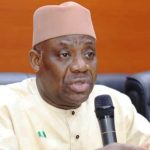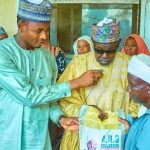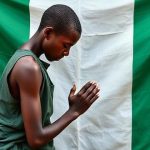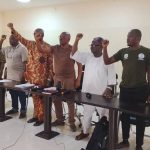First October, a day every Nigerian should live to remember and cherish, but am I really on track to presume how citizens should be dear to a nation – a country that lives and dies with each passing day? Absolutely not. It all depends on what Nigeria means to us individually.
Let me tell you a story, an encounter I have had with an angry acquaintance, someone whose life depends on the air that the country’s soldiers breathe. Someone whose entire family lives in a bandit-stricken community and could only be freed when tens of heroes, who chose this country over their lives and families, sacrificed their blood.
It was noon on September 30th; I had just returned home from a day-long field trip for a story I had been deadlined to submit. The weather was stormy and hot, and I needed a conducive atmosphere to free up my mind, so I went to a friend’s tailoring shop where our circle of friends meets to gist. That particular day there were none of my friends except the one who owns the shop. The shop was filled, though, with humans, banter, and laughter before a total silence would erupt upon the roofing, and everyone would turn to the exit with wide-opened mouths to answer my greeting.
I found where to sit and listened as they argued about whose girlfriend was finer. Someone even swore to sacrifice his to the other if he dared show the picture of the one he claimed to call beautiful before the audience. That was where I lost my guard and burst out laughing because I found it almost impossible to comprehend that someone could sacrifice someone’s child as though we were still living in the servant-trade era. Yet, I refused to say a word, to involve myself in a company I wasn’t invited to.
Then, my friend, the one who owns the shop, asked me, “Legend, why is it a work-free day tomorrow?”
“Tomorrow is Independence Day, man,” I answered.
“What’s even the essence of it? Would’ve been better if Britain hadn’t given us this freedom to be independent,” this person, who still remembers with teary eyes that he had once forgiven his whole family and declared that he would never be back in his hometown, because living there is uncertain. Bandits owned the territory; they decided when the community members should pray in congregation and go to the farm and market.
Reflecting on this story always gives me goose bumps. It made me wonder what we, as a people living in this era, thought life was before independence. But is it because many of us are living a life that’s so very indifferent from death that we make ourselves prefer going back to the past – a moment that still echoes misery, misrule, illiteracy, and detraction of fundamental human rights? I agree that Nigeria lacks good leadership and that common Nigerians like myself are living in induced, yet easily scalable poverty and unpalatable life, but should that be a reason why we shouldn’t love and be hopeful for a nation that we don’t have elsewhere?
Sometime in August this year, I was at a ‘Mai Shayi’ joint in my residence and met with a soldier who my co-customers referred to as talkative. He was wearing a dark-blue t-shirt when he staggered into the noisy hut, an aluminum container tea joint. He had his earphones plugged in and started looking sideways as he approached the entrance, staring at the busy, occupied customers as they jingled within their worlds. As soon as he stepped in, no one had gotten the medium to speak again. He owned the company and the audience, but no one was paying attention to his stories because they were heart-wrenching.
He spoke about wars, conflict, and how he murdered culprits. He told me about his experience at Sambisa, the Boko Haram fighters’ hideout, and how his best friend was killed in cold blood. When I asked about the reason he wasn’t walking properly, he said, “Na Boko Haram!” They shot him from the back during an open-fire encounter. Among other places, he had also lived in Kebbi State at the onset of the Lakurawa insurgency. He told me a lot of his experiences, stories I wish I could listen to again and again until I put them out to the world so we can celebrate these heroes alive.
After his departure from the joint, one of the customers said, “We can now breathe in peace.” Indirectly insinuating his tiredness of my soldier friend’s noise. He has a reason, but my friend also does for being talkative, for his endurance of silence, and for always being on the lookout for companies to speak to, because tell me, what should one do after gulping the unease of killing humans if not to narrate?
Reader, these two stories teach two things. First, as a Nigerian, no matter your social status, this country owes you unconditional love. Love it because it’s your mother; your life depends on it to move further. Second, if your community isn’t fortunate to be safe – please flee with your family to a safer environment if you’ve the chance. If otherwise, do everything it takes to safeguard your life and that of your loved ones.
I understand that our leaders have the dirtiest hand in this failure, and we can hate them with passion. But reader, leaders are a different thing from the country. We change them on a rolling basis, but has Nigeria ever been changed?
Abdulaziz Bagwai is a Nigerian freelance journalist and writer, and a current fellow of the CNN Academy’s Storytelling for Impact Fellowship. He writes from Kano, Nigeria, and can be reached via: aibagwai001@gmail.com





